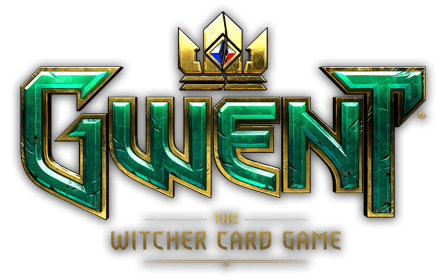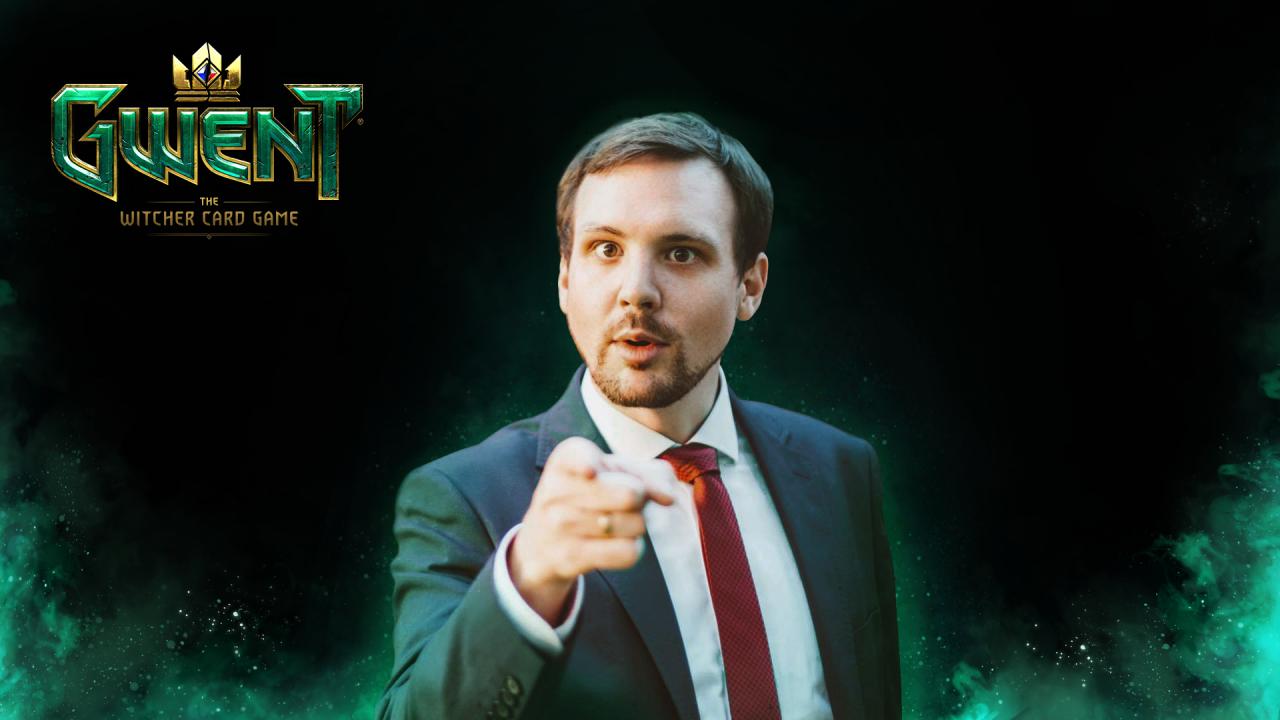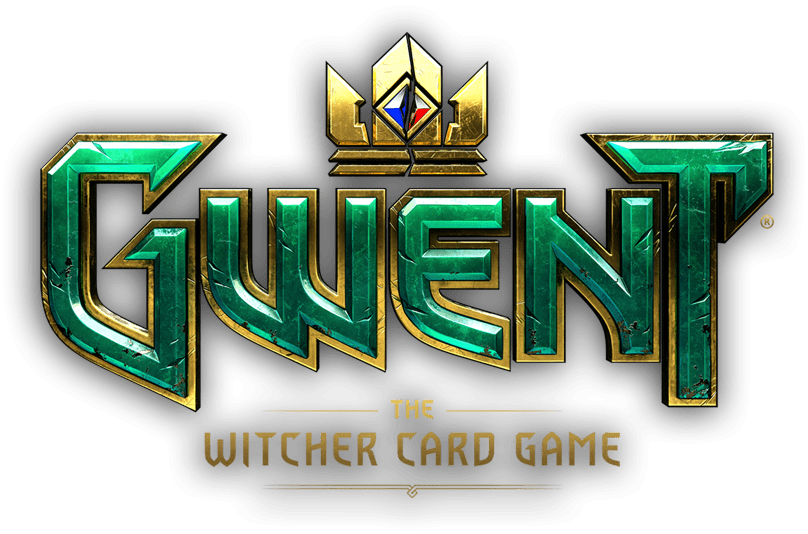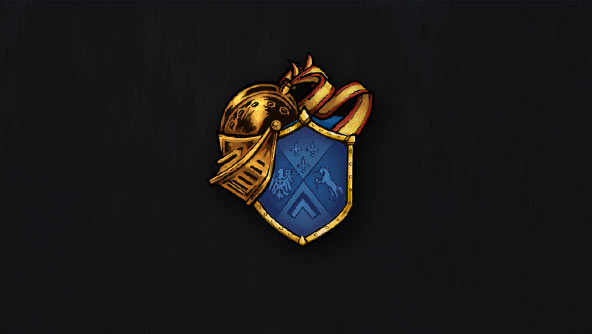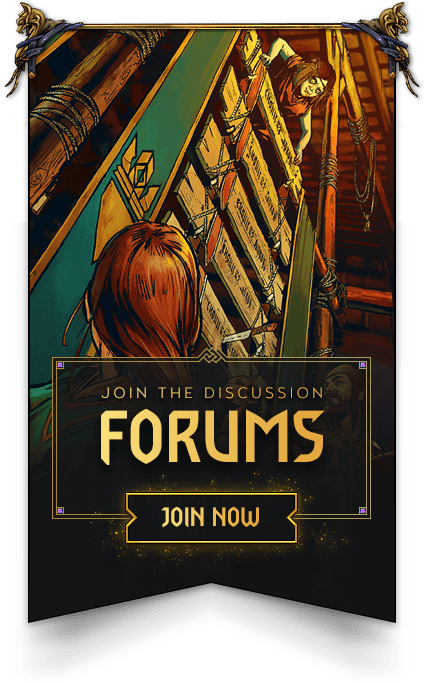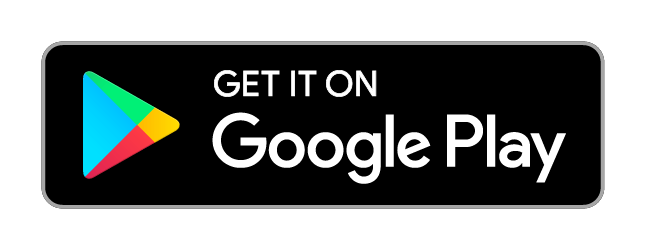Our Forum Moderator, @Riven-Twain, wanted to do something special for our Forum Users and asked for an interview with Jason Slama, GWENT's Game Director. You can check out the whole thing below. Enjoy!
Questions for Jason Slama, GWENT game director.
1. Let’s start with some background. Could you tell us a bit about yourself, your gaming interests, and how you came to work at CD PROJEKT RED?
I learned game development in my teens making mods for Warcraft II, then StarCraft and Warcraft III. It's mainly how I learned to do programming and game development as a whole. It was clearly a passion to me from the start and eventually led to my career. I got my first job in 2008, so about 11 years ago now — wow, time sure flies!
After many years working on various games, I decided to leave my comfort zone and found an interesting opportunity in CD PROJEKT RED and The Witcher 3. I loved the stance the company had on many areas like DRM and was not disappointed by the project or the company philosophy.
I love games of many genres, though have a particular fondness for games that require more strategic thought. Don’t get me wrong though, there is plenty of action-adventure, FPS, indie, etc. style games that have devoured countless delightful hours of my life.
2. What does a game director actually do? Could you give an overview of what an average day at the office looks like for you?
The first thing to note is there is no average day for me and that’s something I really enjoy about my job. One minute I’m working on strategic goals, the next I’m doing presentations to keep the vision for the game or a particular feature we’re working on coherent across the team. I review things we produce and find new ways to drive the team to accomplish bigger goals with even higher quality. I get involved in all design aspects, from features to expansions, though tend to hover at high-level aspects, while trying to mentor and guide the team in one direction.
I play a major role in developing our marketing strategy and have a key role in things like writing our trailer drafts. The leader spotlights, for example, were written by me, and then spruced up a bit by far more talented writers.
Occasionally I have a quieter day, where I can take some time to answer questions for a Q&A like this, but those days can be scarce. I'm trying to use every opportunity to check forums and Reddit. It’s something I want to do more of, but there are only so many hours in a day. I try to always find time, waiting for the next meeting, for example, to play a few matches a day, too. I feel it's an important part of my role on the team to keep a finger on the pulse of the game to help ensure the best decisions are made.
3. Obligatory Series question: Have you played all the Witcher games? Have you read the novels?
I read a few of the English adaptations and have reading the rest on my “to-do-when-I-have-time list”. I never got far in the first two Witcher games, but had a blast playing Wild Hunt to completion. I have spent countless hours at this point learning the Witcher universe and timeline and am simply enthralled by everything about it.
3a. Important question: Yen, Triss -- or Shani?
It’s Yen, of course. As the Last Wish story taught us, she is Geralt’s true love, full stop. I guess having really started with The Witcher 3 I missed out on creating a stronger bond with Triss. Though let it be known that I feel like they are all wonderful characters worthy of the love they receive.
4. What is your opinion of classic GWENT from Wild Hunt? Originally, players simply requested a standalone version of that game. The development has come quite a long way since then. What are your thoughts on this evolution?
Well, since I played an important role in its design and implementation of Gwent in Wild Hunt, I am more familiar with it and its evolution than most. I believe there's an article I wrote for long ago that explained the design was very tied to the RPG nature of that The Witcher 3. I hear the expression power creep in regards to our latest expansion, GWENT: Novigrad, yet it holds no candle to the power creep of cards in that version. While fun as a single player experience, we had to make some changes to the game in order for it to grow and flourish as a multiplayer experience. We definitely made some mistakes along the way. And while I don’t feel like we’ve hit the full potential of GWENT yet, I feel confident that by the end of the year GWENT will be in the best form yet.
5. As director, you’ve inherited quite a legacy for GWENT, not merely the previous iterations from the Betas, and Homecoming, but also the original mini-game from Wild Hunt. What sort of challenges, limitations, expectations, or any ‘burdens’ has this presented to development? Is there ever pressure to maintain a connection to GWENT’s roots, and not stray too far from these?
At some point last year, I decided to take a step back from GWENT to focus on forming a live ops department dedicated to improving that aspect of the game. It felt very strange to watch the team take on such a monumental task as Homecoming from further away than I was up until that point. As a result, I was detached from many of the bigger decisions like never before.
Hindsight being 20/20, it's hard to say with absolute certainty if I would have done anything differently, but with what we know today, for sure different decisions would have been made. Seeing the project I had worked so hard for over the years struggling was tough, but I was not ready to throw in the towel.
Right off the bat I knew we needed to shift our mentality away from traditional game development toward a more live service focused approach. Too often during the development of GWENT we tried to do a big and challenging update over several months, hoping that we’d get it perfectly. Despite us being proud of having accomplished our challenging goals, reality rarely matched expectations.
So far we’ve managed to do a fairly large update every month, with smaller updates here and there. This would have been impossible with the way we were previously approaching development. Launching so many quality of life improvements with two expansions this year has been quite the rollercoaster, but I am super impressed with what we have achieved. There’s still a way to go, but given time, I believe as a team we will reach our stride and make GWENT the best it can possibly be.
6. What's the hardest decision you have had to make regarding GWENT? What's the hardest part about developing GWENT, in general? What's the most enjoyable part?
Truly hard decisions are often related to ideas or features that are either delayed or never make it into the game. While it’s certainly difficult to forgo an idea or feature that you love and believe in, they’re often compromises that are important to make. Ultimately, it's really hard to see people asking for things that we would love to make or know its coming, and not being able to talk about it.
That being said, it's humbling and amazing to see all these people sticking around and loving the work you do. That’s a huge motivator for us and helps us move forward despite the challenges ahead.
7. What are the stages involved in creating a new card, and what is your role in that process? On a more specific note, can you tell us a bit about the design process for the new cards in the Novigrad expansion?
This is a process we are constantly refining and are currently striving to improve. We start by creating a large series of art briefs, deciding that we want a certain number of units, for example, or how many will be in each faction. Then we write outlines for how the cards should look. This is done very early, since the most time-consuming part is making all those awesome illustrations and transforming them into premiums, as well. I often throw in some ideas at this stage and do final reviews and approvals.
At this first stage we also make a general plan of what we want to do from a gameplay perspective. For example, with Novigrad, very early on we knew we wanted the expansion to focus around gangs. We didn’t know yet exactly what each would do, but we had two ideas we were throwing around at this point: Coins, which, as you know, ended up in the game, and another concept revolving around districts that didn’t make the cut.
While the art team is busy producing the art, the design team starts fleshing out keywords and concepts they want to explore. Keywords like Bounty, Fee, Insanity are figured out early and often go by very debug names that get spruced up later on. Card abilities start getting penned into a spreadsheet and a review is performed over the whole concept. Gameplay programmers are consulted and begin creating new tools for the designers to add their ideas into the game.
After a few iterations of pitches and compromises, a final scope design-wise is closed and the designers begin refining their ideas while implementing them into the game. Once everything feels ready to start testing, we launch a private PTR and start letting reality clash with ideas over a set period of time and start tweaking stuff up. Once this process is done, we implement the final changes based on a combination of our analysis and the reactions from the PTR, and prepare for the release of the expansion.
8. Some players feel that the developers favour certain factions over others, for example, Nilfgaard, or Skellige. What are your thoughts on this perception? And, for the record, is there one faction which is more popular amongst the Team?
You can find fans of each faction within the development team. If there is a bias, it’s not intentional. Honestly, though, I feel this is just one of those myths that's impossible to prove or disprove.
9. Which faction has been the most challenging to balance? On a related note, is it more difficult to create new cards for one faction over another?
I don’t really get the feeling that we have particular issues with any specific faction, but sometimes we run into abilities that are limiting what we want to do, and that can be hard to work through. Eredin’s old ability, for example, made it scary for us to add certain cards that would get too strong when immune. Emhyr was another great example, as our neutral cards can get wackier in general.
10. How do you feel about the current faction identities and archetypes? Are you satisfied with the present selections, or do you feel they could be improved?
Skellige and Syndicate definitely are the best in this regard and we really want to improve it for the other factions. Though still not perfect, the adjustments we made to Nilfgaard went a long way to helping improve that faction and its change in playrate reflects that. This is a tough subject, but we feel like we have a solid idea on how to improve here overall and it's something I am looking to discuss more with you guys in the (hopefully) near future.
11. What qualities make a card fun for you personally? What abilities do you find most interesting? What are some of your current favourite cards and why?
I really love cards that tell a story which can be used in really clever ways gameplay-wise. Cyclops is a great example and I keep lightly pushing the guys to make it actually throw the card at the opponent — I think that would be so cool! When I play Scoia’tael, I love the Vrihedd Dragoon for its flexibility, especially when combined with crushing traps or row-locked units — why destroy when you can move an opponent’s unit into a trap? It's the kind of card that's flexible in an interesting way.
12. If you had to describe GWENT to a friend, how would you do so in 3 sentences or less, which would make it apparent how it sets itself apart from other collectible card games?
GWENT is a game with strategic depth, where how you play your resources has a greater influence than the randomness of your card draw. A game where getting the deck you want doesn’t take an unreasonable commitment in terms of time or money.
13. What is it like having to react to gameplay trends in the community in order to ensure balance within the game? How often (and to what extent) does community feedback influence the direction you will take with GWENT, in terms of (re)balancing cards and releasing new content?
This can be an incredibly complex subject to manage, as members of the community can really land all over the spectrum when it comes to opinions. Sometimes we feel like a card is fine overall, but the overall sentiment is so negative that we feel we have no other choice than to change it for the health of the community. I can count on the fingers of my hand the number of cards that we changed solely based on this, so it's always amusing when people say we’re making decisions because of the outcry of the masses. Sometimes though, like with “F@!# Sihil”, the decision is easy to make. :D
It gets really challenging when there is a call to arms to remove or heavily change a card that is an issue only because of how people have flocked to a specific deck. In reality, the higher you go in terms of rank, especially if you aim for Pro Rank, the diversity fades and we are often finding ourselves wondering how to shift the meta to a more varied deck diversity. I get the feeling that the pressure to min/max in order to climb results in a flocking to highest-consistency decks despite there being a much wider variety of decks with over 50% win rate.
There is a particularly difficult phenomenon within the community to flock to the most popular decks despite their superiority being marginal, sometimes an illusion, even, according to actual statistical results. Let's call this meta momentum. Meta momentum can easily lead to players often seeing the same decks over and over again. We want to try and introduce monthly balance changes to help keep the meta momentum moving. However, figuring out exactly how to do that is a constant challenge, as calling out a different deck as being awesome risks just having the masses shift to a different deck, which doesn’t actually improve anything.
14. A lot of players have expressed their concerns for the RNG in the game, yet we continue to see cards like Wheel of Fortune. What is your standpoint on these RNG cards, and why are they added to the game?
In general, we avoid them — Wheel of Fortune is only one of two cards with some form of RNG in its mechanics added in an expansion of over 90 cards. However, it's healthy for the game to have some wackier cards. When we decide to add such a card, we are very careful about it to prevent it from being too wild, enabling swings that outright win a round or the game, even if super rarely.
15. Some players are nostalgic for ‘classic’ GWENT, either a version from the Betas, or Wild Hunt style, and, as a result, have chosen not to play the current version. What would you say to such players?
Let me start by saying that anyone who gave up soon after Homecoming — I hear ya! There were just so many new concepts for us to explore and master that it's not surprising we didn’t get everything immediately perfect.
Take provisions, for example. It can be a difficult new concept to digest, as it definitely complexifies deck building, but as you get the hang of it, the possibilities start to be really exciting and I believe it's a superior system overall. That being said, it’s so different from the way decks were balanced in the Beta, it's not a surprise that some of the more subtle intricacies were difficult for us to master.
For example, by its nature, you’d think the provision of a card should more or less equal its value in the game, right? While to some degree there is a hint of truth here, over the months we began exploring and discovered that we were missing a key aspect. To understand it better, we need to take a step back and look at GWENT before the provision system was added.
Previously, bronze cards were a staple of your deck and played a key role in your strategy. With provisions, the range of a card’s strength became so large that our lowest provision bronze cards were often feeling subpar, to say the least. This led to a large portion of our cards feeling “unplayable” or “mulligan fodder”. In contrast to what players were used to in Beta, I believe this was one of the reasons for why so many people have had a hard time transitioning to the provision system. However, if you look at the current high-tier decks, you will discover that we do have bronzes that avoid this feeling entirely. By looking at which bronzes are considered playable, a strategy has emerged which we are working towards.
This is why the provision system will be balanced with more of a curve. At the center of the curve (6-8 provision), a card’s provision should generally equal its power (1:1). At lower provisions, we will try to increase base power where it can somewhat reliably, albeit conditionally, go above its provision value. At higher provision values, a card’s value will often be lower than its provision count. However, all things considered, these cards will remain the most powerful cards at face value — Old Speartip is a straightforward example here. Generally, bronze cards will take more turns, synergy, or conditions to reach this extra value. Currently, we feel we were too often balancing bronze cards with their conditional abilities into their provision value and this needs to change.
With Novigrad, our latest expansion, we introduced a brand new faction — Syndicate. We decided to balance its cards mostly according to a new strategy that makes bronze cards much more exciting to include in decks and feel like it was a rather large success. The power level did not overwhelm the other factions to a drastic level. We are happy with the results so far, since Skellige, which we believe is the closest balance-wise to where we want all factions to be, ended up landing almost exactly at the same power level as Syndicate. With confidence in our new balancing approach growing, we feel ready to start making larger-scale adjustments, which should arrive in the very near future.
Long story short, we really pushed forward over the last few months and personally — as a gamer — I believe it’s worth giving GWENT a second chance, now more than ever.
16. Aesthetically, The Witcher Series has a reputation for a dark, mature, gritty atmosphere. For some players, this is a very strong attraction, and yet, for others, GWENT is meant to be a tavern game, with a lighter tone. How do you confront the challenge of striking a balance between these two aesthetic fields? On a related note, how has GWENT’s rating influenced the artwork on the cards?
As I feel this is a question better suited for our art director to answer, I won’t get into too much detail. But I will say that those who prefer one of those two aesthetics you mentioned will often not enjoy the other. Ultimately, we have to focus on one or risk alienating everyone. I personally enjoy our current visuals a lot and I will tease that we are working towards eventually having much more fun and interactable environments, though I won’t say more for now. This new style really opens a lot of doors for us that we have yet to fully explore and reach its max potential.
17. When standalone GWENT first appeared, several gamers were suspicious of the in-game purchases, considering CDPR’s reputation. Even now, there is still a perception amongst some that, if players pay enough money, they can win in GWENT. What are your thoughts on this topic?
The way we see it, getting a couple of decent decks up and running should never be something that is locked behind a paywall — that never was and never will be the case in GWENT. And by decent decks, I absolutely mean ones that allow for competitive gameplay. I believe GWENT right now is very generous, but not overly so, in the way it rewards players for achievements and progression — for simply playing, if you will. That feels good! At the end of the day, we still need to pay the bills, but that’s something we plan on doing more and more via vanity item sales.
18. Moving into the realm of lore: Often times, there are discrepancies between a card’s ability and the lore behind the card, for the sake of numerical balance. What is the process for striking that balance between lore and playability? What is it like trying to juggle a pre-existing story and established lore with the necessity of creating cohesive factions and card mechanics?
This is a really difficult thing to do and is such a complex process that a short essay could be written about this. I can say we are constantly trying to find more ways to infuse gameplay with lore and the Borsodi brothers are a great example of us accomplishing that in a fun way.
19. Several of the cards depict familiar characters from the lore in the books and previous games; however, GWENT also has introduced entirely original characters, sometimes with little fanfare. For example, the soldier Falibor, Milaen the elf, the demon Ruehin, and Derran the Skelliger were all created exclusively for GWENT, as was Gudrun Bjornsdottir and her crew in the Syndicate faction. What sort of interesting, untold stories hide behind these characters? Moving forward, can we expect more new faces, with more detailed introductions into the Witcher’s universe?
Yes, yes, and yes! I believe GWENT has shown us that we can go beyond just drawing existing characters and stories and that is very fun and exciting for us.
20. We’ve seen a stronger story surrounding the Novigrad Expansion’s release than we saw with Crimson Curse. What was it like creating the Walter Veritas journal entries? In future, may we expect more story elements in GWENT?
It’s been a challenge, as this was something I wanted to explore personally. I felt like it was something missing with Crimson Curse and wanted to see how people would react to it. Overall, I am not discouraged from exploring this concept more in the future.
21. What is your opinion of Thronebreaker? What do you think of the blend of RPG story-telling and collectable-card-game gameplay?
I enjoyed Thronebreaker and feel like if we ever decided to do another one, learning from the first entry, we could create a truly spectacular experience.
22. Thronebreaker set up the expectation of a series. Can we hope to see new Witcher Tales eventually? If not, might we perhaps see more RPG elements in regular GWENT?
Adding more RPG elements to GWENT is something that’s always in the back of my mind, but not something we are concretely moving forward for now.
23. Who writes the story entries for the Reward Book?
A writer! ;)
24. During the Betas, there were short story-driven single-player events. Were these one-time, experimental preludes to Thronebreaker, or could we expect to see something similar in future?
In the exact form they existed in the past, no. They were really difficult and time-consuming to create and were digested by players sooooo quickly. Seasonal events are a step in that direction, however, but I am not sure when we will flesh these out further.
25. What are the long term plans for GWENT, in terms of expansions, GWENT Masters and other new features? What are your hopes for the future?
My hopes for the future are epic and thus incredibly difficult to talk about. Let’s just say we are not bored or running out of interesting ideas and things to work on. I hope when people look back at 2019, they feel like, “hot damn, these guys did so much this year!”.
26. Finally, will Knickers (the dog from Thronebreaker) ever join online GWENT?
Woof woof?
See more news
Update on Windows 7, 8 and 8.1 support
June 27, 2024comments (5)
GWENTfinity and the Balance Council
January 12, 2024comments (0)
